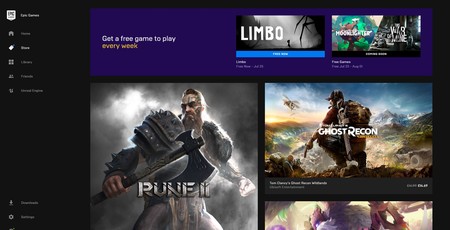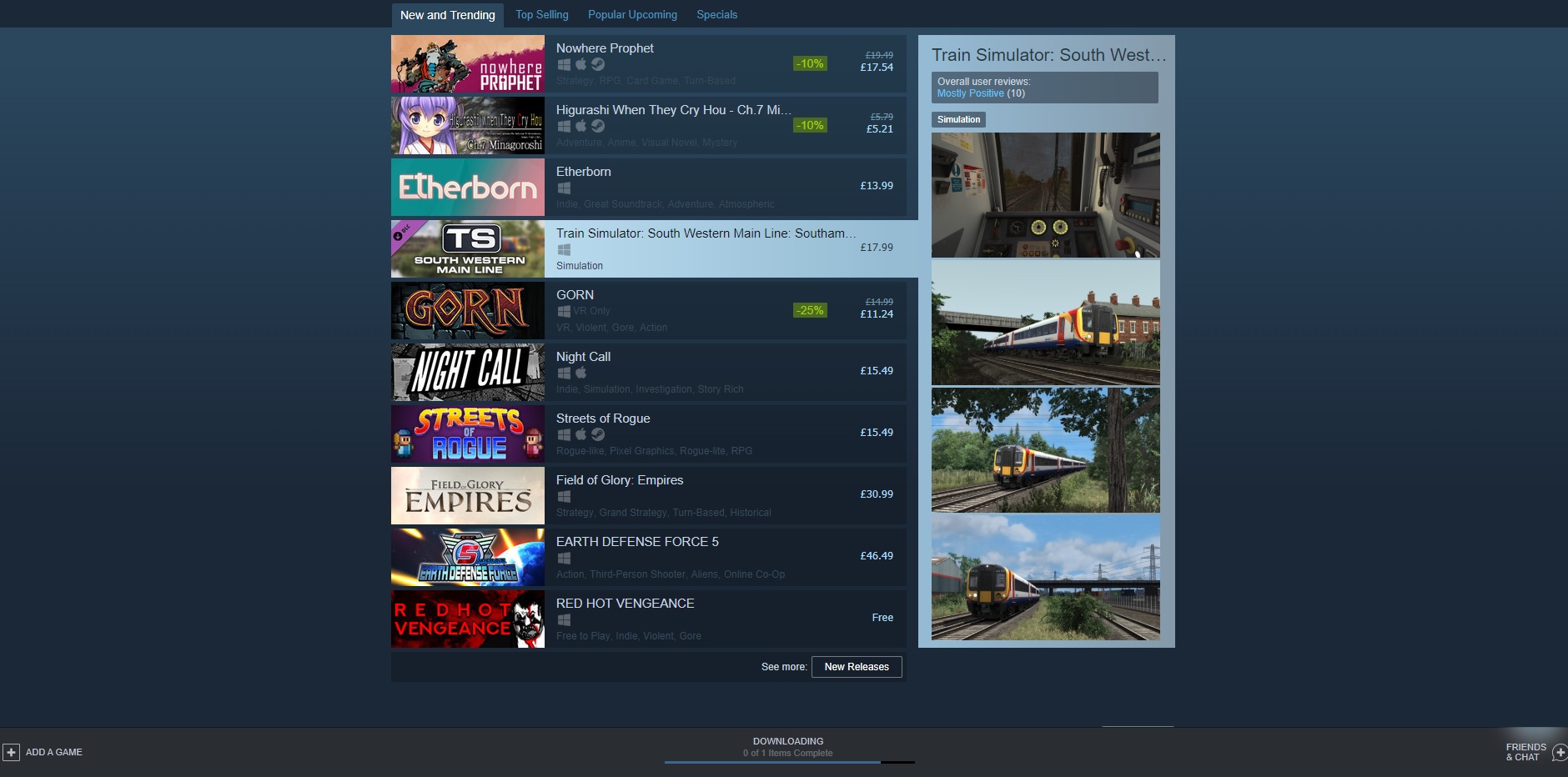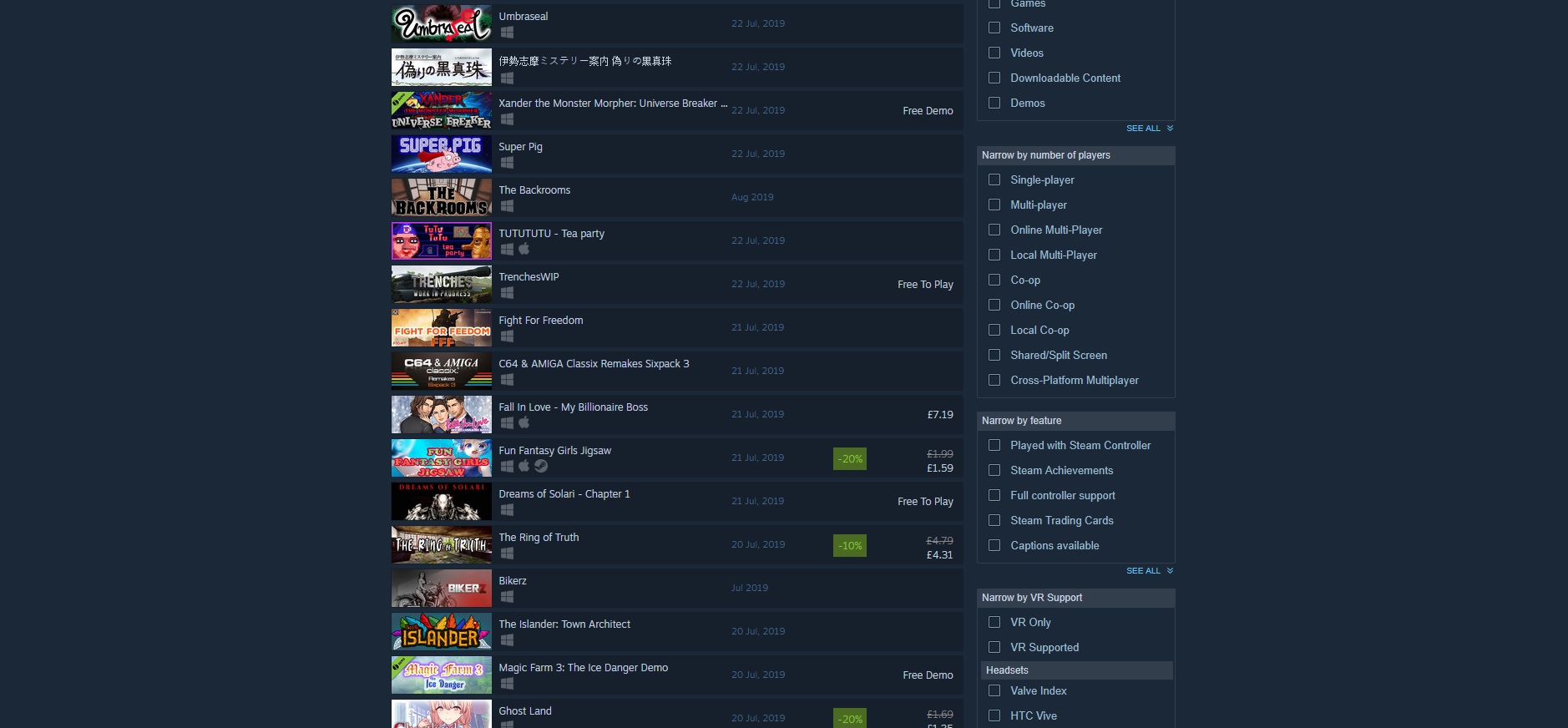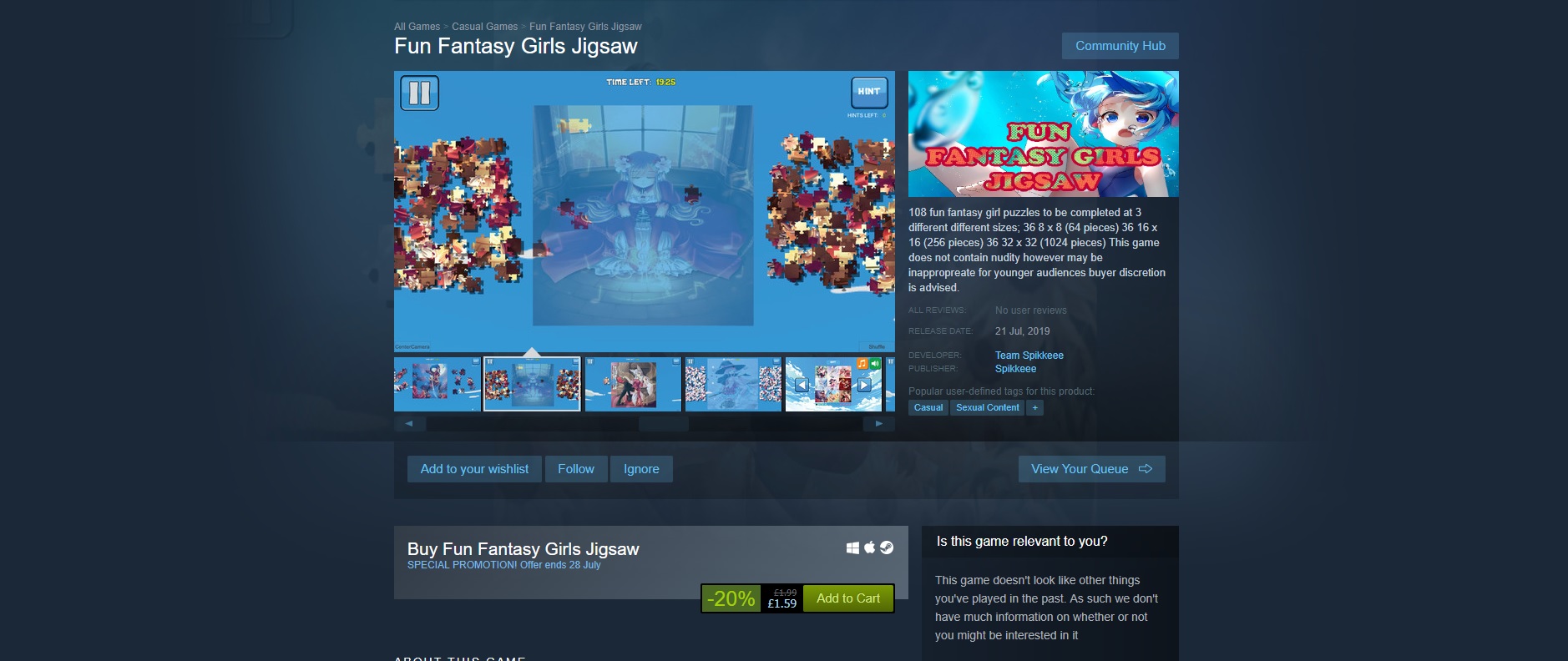
The outrage over the Epic Games Store (hereafter Epic Store) has to be some of the most ridiculous I’ve seen in a while. Every time I see a comment on a game review that says something like 'Epic Store exclusive. Not interested,' I boggle at the sheer, clanging, weapons-grade silliness of it. It makes me want to set my desktop on fire and leave my house to become a Tibetan monk, isolated from anything that looks remotely like a PC.
Sorry, sorry. That was a somewhat confrontational opening paragraph. Thing is, there are valid criticisms to be made about the Epic Store (I'll make them shortly!), just as there are valid criticisms to be made about every PC gaming storefront there is. Sadly, they’re all pretty rubbish in their own special ways. Picking on the Epic Store is like having a go at your bath for overflowing in the middle of a tsunami.

In fact, when I first heard that Epic was creating its own storefront, I was thrilled, because it meant, finally, some actual competition for Valve, which has enjoyed a de-facto monopoly on PC gaming for the best part of 10 years. And nobody cared, because for the longest time Valve was PC gaming’s benevolent dictator, appeasing the masses with its regular sales and Steam’s extensive social features, further boosted by its image as this perfect company where anyone could do what they wanted, and the fact that it created some of the best goddamn PC game series ever made: Half Life, Left4Dead, Portal.
In recent years, however, Steam has gone from PC gaming’s boutique store to PC gaming’s thrift shop, a gigantic virtual dumping ground where you need a headlamp and a shovel to find the games that are actually worth buying. Worse, instead of actually hiring people to curate its increasingly crowded platform, Valve has instead tried to shirk the problem onto the community through Greenlight and user reviews, before praying to the altar of algorithms to make the problem go away.

It hasn’t. At all. I don’t even know what Valve’s current policy is in terms of which games make it onto Steam and which don’t. But I do know the system is ripe for abuse. The 'Recommended' tab for upcoming games, for example, can be easily manipulated by developers by maintaining a vaguely close release date to keep their game relatively high up on the storefront. It also perpetuates the vicious internet cycle of popular things only becoming popular because they’re already popular, while everything else gets lost in the crush of online releases.
At this point, Steam has precisely two things going for it: its longevity (and the community which has built up as a consequence of that), and the fact that it isn’t any of the other storefronts. Origin is bad, Uplay is worse, and the less said about Microsoft Store, the better. Given all of this mess, you’d think that a storefront that offers a hand-picked selection of games and a more generous revenue split between developers would be welcomed with open arms. And, for perhaps a few weeks, it was. But then Epic started paying developers (presumably) exorbitant amounts of money to feature exclusively on the store (or at least not on Steam), either permanently or for a set period of time, and the fallout from that has dominated all conversation about the storefront for the best part of the year.

The reason for this seems to be some weird combination of wanting to have your games all in one place, and bizarre notions that Epic is somehow impinging upon personal freedoms. The first is particularly daft, because PC games are already all in one place: your PC. Having to use two different storefronts is hardly a massive inconvenience. It isn’t like playing games on two different consoles, where you’d need to invest an additional chunk of money just to play the games that you want. It’s kind of what Windows is for.
As for the personal freedoms, firstly, it’s a storefront, not a government; let’s not get ahead of ourselves. Epic’s approach to bringing in customers is undoubtedly heavy-handed, but I also think the response to it is indicative of just how over-reliant we have become on Valve and Steam. Convenient as buying all your games on one storefront may be, a single company having near total-control over the market is never a good thing. It’s the same reason why Amazon is so goddamn scary. When your online bookseller starts bidding for a contract to build a 'War Cloud' for the U.S. Military, it’s time to start asking whether you should maybe spend an extra couple of quid at your local bookshop on the latest Joe Abercrombie novel (To be fair, Microsoft is also bidding for the same contract, so maybe Linux gamers are the real MVPs? - ed.).

This isn’t to say that Valve is Amazon, or that Epic is your friendly local bookshop. Rather, it’s another industry titan that's evidently able to throw around a similar weight to Steam, hence the heavy-handedness. And as I said, it has problems of its own, such as the lack of any way to sort through games, an inability to save games to the cloud, no account sharing, no dedicated forums - basically a lot of stuff that Steam has built up gradually over its 15-year existence. Some of the pricing has also been a little…iffy, particularly on smaller games such as Close to the Sun, which launched at £25 for roughly two hours of play. It’s worth noting that Epic is currently working on many of these issues. It's added several more community-friendly features such as regular deals and free games that are yours to keep, and there's even a Trello board detailing the storefront’s roadmap.
Yet whether or not Epic or Steam are benign or malign entities in and of themselves, the existence of a direct competitor to Steam is a good thing. The idea of having a properly curated storefront where you don’t need to sift through countless asset flips and hentai block puzzlers to find a game that’s actually worth playing is a worthwhile one. And it might encourage Valve to start cleaning up its own act rather than relying on the community to do all the work for it. Moreover, the PC is and always has been an open platform, and it’s good to see a company shaking up the status quo, even if its methods are, currently, somewhat blunt.

MSI MPG Velox 100R Chassis Review
October 14 2021 | 15:04









Want to comment? Please log in.